How the first woman president would save the US from chaos
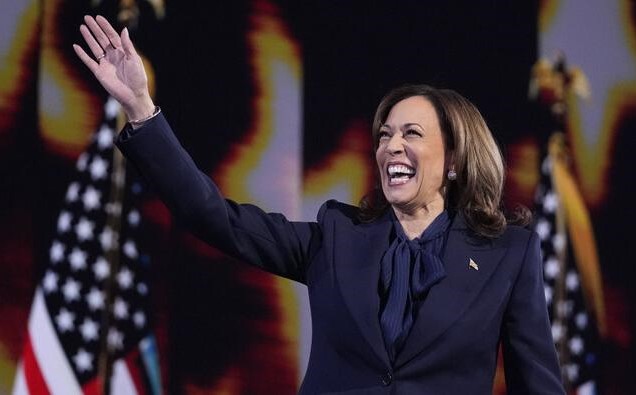
BY SOUMANOU SALIFOU
After President Joe Biden’s disastrous June 27 debate which threw the Democratic party in a panic mode followed by calls for him to drop out of the race, several surveys had Vice President Kamala Harris virtually tied in a hypothetical face-off with former President Donald Trump in November. What a feat—though it’s all still hypothetical—for a black woman in a country where racism is still pretty much alive, an apparently gender-sensitive United States of America that proved reluctant, only eight years ago, to elect as its president a female candidate, one of the most qualified contenders ever to run for the high office, Hillary Rodham Clinton.
Kamala Harris, a woman of firsts
On January 20, 2021, when Kamala Harris was sworn in as vice president, she was the first woman, the first Black American, and the first South Asian American to rise to that level. Her track record leading up to the second-highest job in the country was nothing short of impressive.
She was sworn into the U.S. Senate in 2017, becoming the second African American in history to serve in the upper chamber. In 2010, she was elected Attorney General of California where she oversaw the largest state justice department in the country and won re-election in 2014.
Her achievements in the Senate include her advocacy for healthcare reform, a path to citizenship for undocumented migrants, strict gun control, progressive tax (which involves increasing the tax rate as the taxable amount increases), legislation to fight hunger, expansion of access to capital for small businesses, combatting the climate crisis, and more.
A tough defender of progressive values
In August 2020, while serving on the judiciary committee, then-Senator Kamala Harris made a splash during the confirmation hearing of Trump’s second nominee to the Supreme Court, conservative judge Brett Kavanaugh. Among other tough questions, the senator from the liberal state of California who advocates for a woman’s rights to abortion, put the judge on the defensive, causing him to freeze for a while, by asking, “Can you think of any laws that give government the power to make decisions about the male body?” The exchange went viral and received a lot of plays on talk shows and social media. That drew the ire of then-President Trump who described the senator as “extraordinarily nasty” during remarks to the press: “She was nasty to a level that was just a horrible thing,” said Trump, adding, “I won’t forget that soon.”
That, however, did not deter the senator who proved equally tough, a year later, during a senate hearing on the findings of the Mueller’s report on Russia’s interference in the 2016 U.S. presidential election. Harris put Trump’s Attorney General, Bill Barr, too, on the defensive. As the attorney general hesitated to answer one of her questions, Harris said, “I think you’ve made it clear, sir, that you have not looked at the evidence and we can move on.”
A dedication to righting wrongs
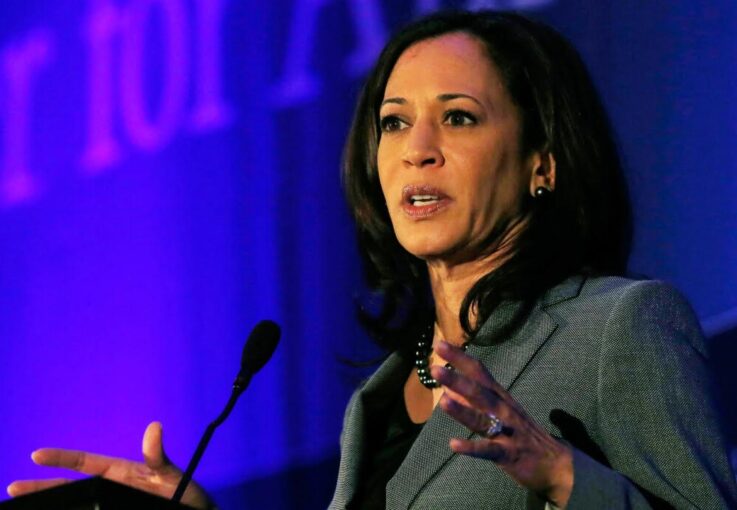
The vice president is known for this famous statement of hers: “At every step of the way, I’ve been guided by the words I spoke from the first time I stood in a courtroom: Kamala Harris for the people.” Indeed, as Attorney General of California, she won a $20 billion settlement for Californian homeowners who lost their properties, and $1.1 billion settlement for students and veterans who were taken advantage of by a for-profit education company. Her fight for healthcare later in the U.S. Senate dates to her years in California where she defended the Affordable Care Act in court. After her election in 2004 as District Attorney of San Francisco, Harris became a national leader in the movement for LGBTQ+ rights, going on the record as the person who officiated the first same-sex wedding after Proposition 8 was overturned.
President Biden’s trusted partner
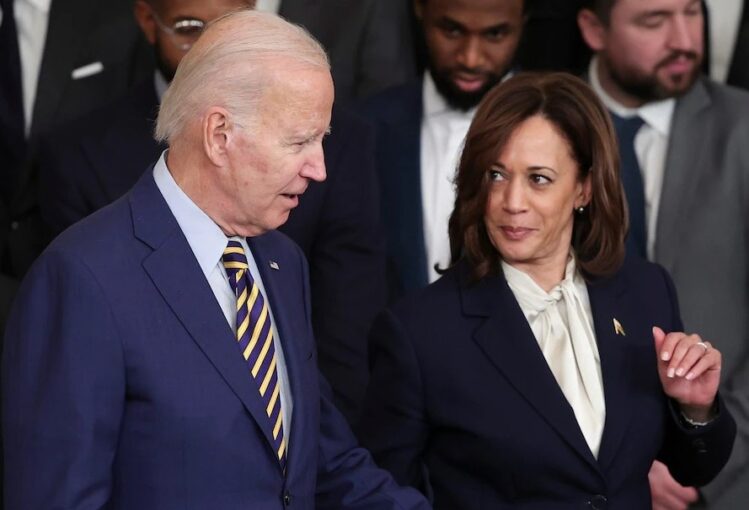
Being a trusted partner of President Biden, the vice president is entitled to her fair share of credit for the monumental, life-changing achievements the administration has delivered for the American people: the creation of 15.4 million jobs, bringing the unemployment rate from 6.3 under Trump to 3.7, the lowest in decades; the fall of gas prices down to about $3 in most of the country; and achieving an annual growth rate of 3.4%, the best in decades. This is not to mention the feat of capping the cost of insulin at $35 a month for seniors, cutting prescription prices, improving maternal health by expanding postpartum care through Medicaid, the passage of a meaningful gun law, or a massive student loan forgiveness. To top it all, the so-called “Infrastructure Bill” born out of a bipartisan coalition, enacted a whopping $1 trillion investment in the country’s infrastructure—public transit, bridges, high-speed Internet, and more.
A woman of firsts, the vice president set a new record for the most tie-breaking votes by a vice president, “surpassing,” according to White House records, “a record that had stood for nearly 200 years.” This includes casting the decisive vote to secure passage of the landmark Inflation Reduction Act of 2022 designed to make a historic down payment on deficit reduction to fight inflation, invest in domestic energy production and manufacturing, and reduce carbon emissions by roughly 40 percent by 2030.
Rubbing elbow with U.S. partners abroad
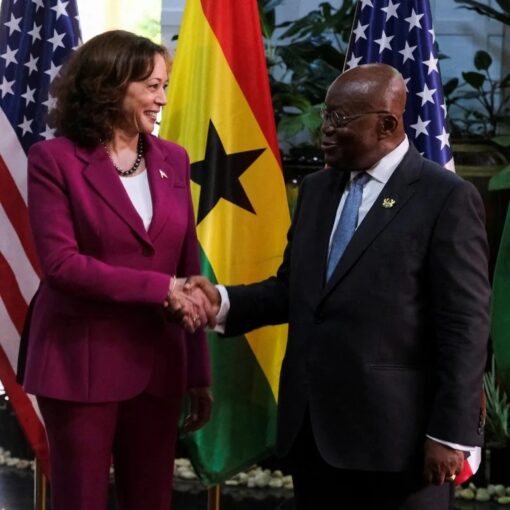
A trusted emissary of President Biden overseas, the vice president has so far traveled to more than 19 countries and met with more than 150 world leaders. During the Second U.S.-Africa Leaders Summit convened by President Biden in December 2021—bringing heads of state from 49 African countries to Washington—the president announced his intention to visit Africa. The announcement, welcomed by African leaders and applauded by members of the African American community, is yet to materialize. (Unforeseen world crises such as the wars in Ukraine and in Gaza, not to mention the surge in opinion polls in favor of the president’s rival for the 2024 election, apparently pushed the plan to visit Africa down on the president’s agenda.) But Vice President Kamala Harris, she, was there in March 2023, visiting three countries: Ghana, Tanzania, and Zambia. During the 9-day tour, she met face-to-face with the countries’ heads of state, pledging large amounts of financial and logistical aid.
Extraordinary times in the United States and the world
American democracy—the strongest in the world until the Supreme Court lost its neutrality in the past two years or so by condoning the criminal actions of former President Trump—empowers the voters to hold politicians to higher standards than in most other countries. It’s no different in this election cycle when, by all accounts, the upcoming U.S. presidential election is a choice between two strikingly different agendas for the country and the world. While former President Trump is on record for stating openly his plans to upend the established judicial and democratic norms at home and turn world order upside down, the ruling party has vowed to continue its policies, both at home and abroad, that have been hailed by the majority of the people.
Leading voices in the U.S. media have raised the alarm about the cliff Trump’s return to the White House will lead the world into. Among others, the editorial board of The New York Times—a group of opinion journalists whose views are highly respected—have contrasted Biden with Trump, describing the former president as “an erratic and self-interested figure unworthy of the public trust.”
Diversity as it comes
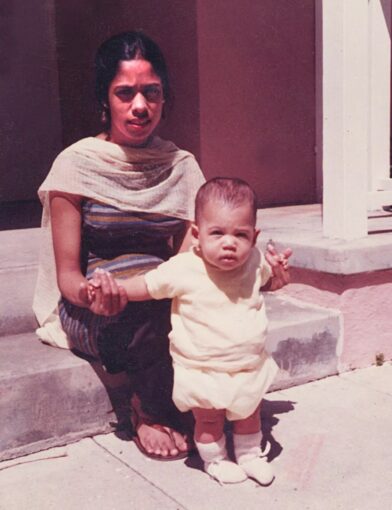
The story of Vice President Kamala Harris, a black woman born in California 59 years ago, is the fascinating tale of the daughter of a man from Jamaica, Donald J. Harris, and a woman from India, Shyamala Gopalan, who came to the United States in pursuit of the American dream. While studying at the University of California, Berkeley, they met thanks to their shared interest and involvement in the civil rights movement. Arguably, Kamala’s upbringing and the fact that she studied at Howard University—a leader among Historically Black Colleges and Universities—have shaped her to become an advocate for the people.
Judging by the staggering accomplishments of this barrier-breaking public servant who has served with the best president the United States has had in decades, one can argue that she is the right person for these challenging times when some of the fundamental values on which the United States is built are threatened.
The question brewing in the mind of many these days is whether the United States is finally ready to have her own Angela Merkel (former German Chancellor), Maria do Carmo Silveira (formerly Prime Minister of São Tomé and Príncipe), or Yulia Tymoshenko (currently Prime Minister of Ukraine).
Can Kamala Harris, a woman of firsts, walk through that glass door Barack Obama shatter-opened in November 2008 to become the first black president of the United States?
To read more, click here

